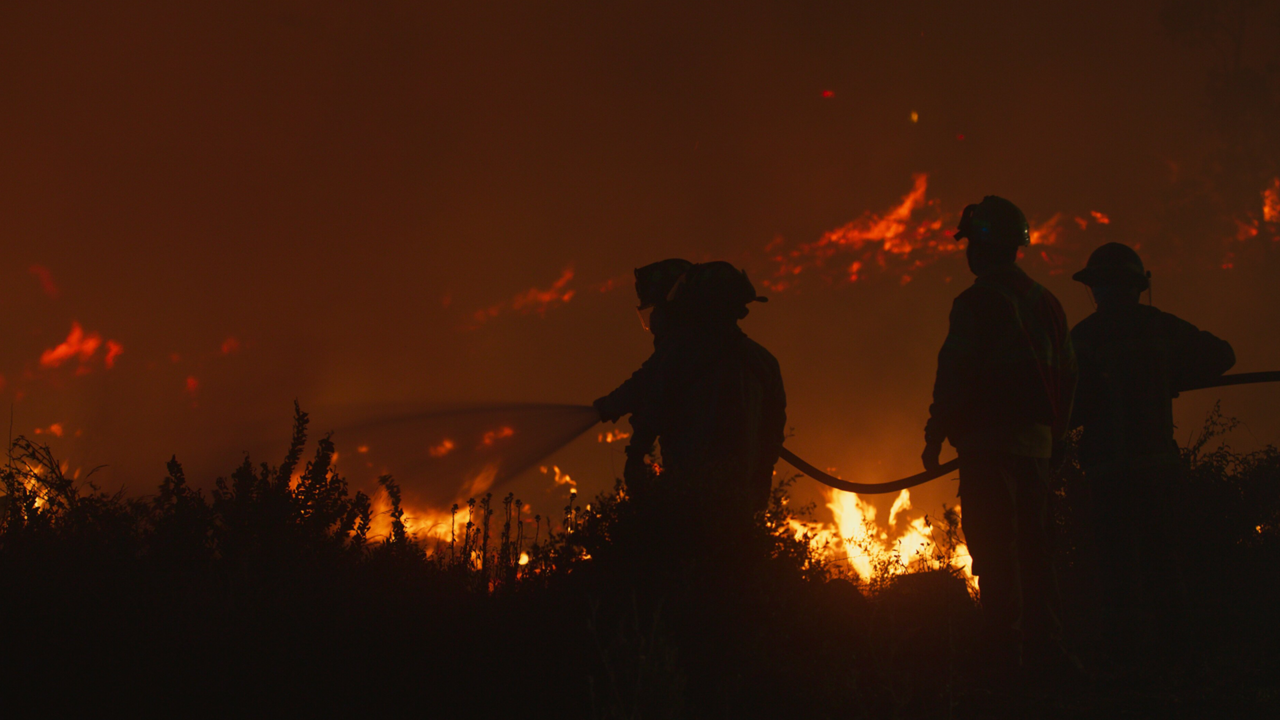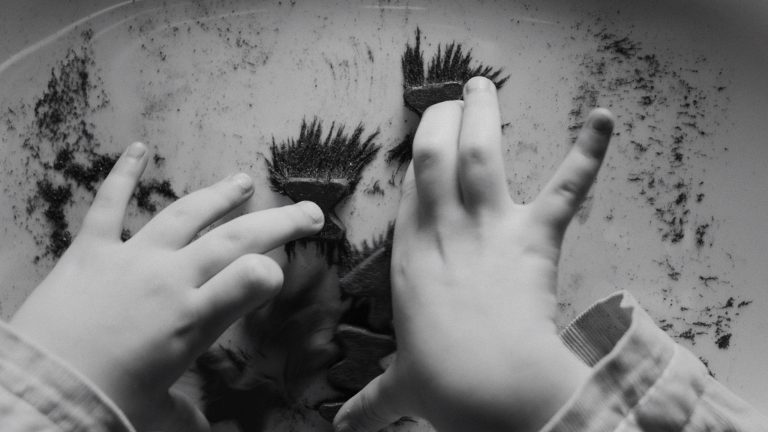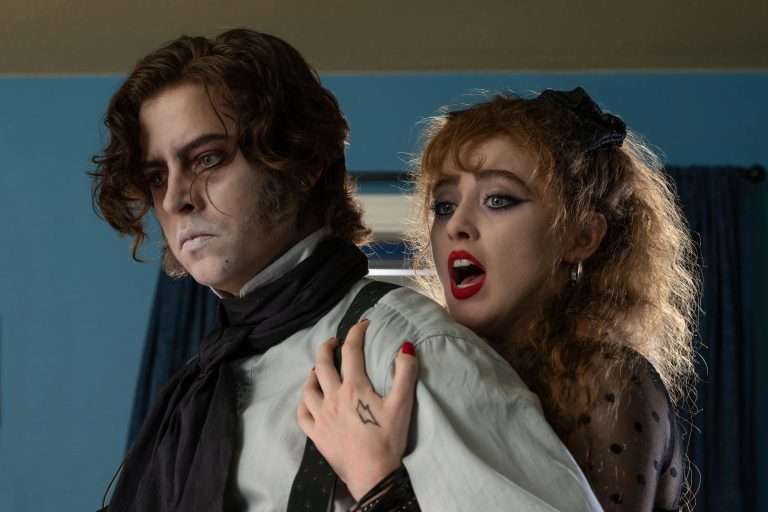Nicolás Molina’s “Pirópolis” is visually arresting. Right from its first frame, it holds your attention with its stunning compositions and striking tonal richness. But beyond its aesthetic excellence lies a harsh reality. What we see is essentially a land that is at war with itself in multiple ways. Set in Valparaiso, Chile, wildfires have sadly become a common occurrence on this land. So, we witness the spectacle of nature burning in front of our eyes as the country grapples with problems like many parts of the world. The dictatorial government is suppressing the voices of the populace who rightfully seek a safe presence for themselves.
Amid this chaos, the film captures the everyday lives of the volunteer firefighters beyond their heroic acts. We see the old chief of their fire brigade, Captain Héctor Casacubertas as he gears up to train his team to control the rapidly growing amount of wildfires with the help of French instructors led by Alain Baptista. The film captures the friendly conversations in their mundane lives interrupted by the sudden fire eruptions in the woods. It builds a strong sense of camaraderie between Casacubertas & Baptista, who see each other as more than just fellow firefighters.
While trying to guide his predominantly male staff, the Captain welcomes the female volunteers. With junior firefighters, he tries to build a safe space for these women as they enter this department. During these non-eventful or non-violent parts, the film explores the monotony of their lives and humanizes these ‘heroes.’ It shows these firefighters talking about a shower with hot water or about a neat & clean shave as others do. This seemingly unorthodox representation of their lives & co-existence helps the film stress its thematic contrast between the calm and the chaotic.
While developing a sense of friendly community, these firefighters carry on with their jobs and find ways to be more proficient. However, the film never explicitly explains any of its scenarios or provides us with exact details of the country’s tumultuous past and present. So, viewers who are unaware of this specific chapter of the conflict may find themselves not grasping its real-life urgency. Nevertheless, the film does offer us bits of the agonizing history of their emotional and political struggles.

‘Pirópolis’ features multiple serenely shot scenes of wildfires that showcase the ground reality in this South American country. It gives us a reason for concern since global warming isn’t just limited to this region and affects everyone in every corner of the world. In other scenes, the film shows large crowds marching on the streets against a government that chooses to suppress their voices. Considering the loss of freedom of speech in several countries, this is a ground reality for many.
For the most part, the camera remains still, distant, and unassuming. It doesn’t dictate the scene but observes it. Through this approach, the film manages to show the absolute horror of the ground reality in Valparaiso while letting it unfold on its own. However, it features some scenes that seem staged specifically to offer bits of context to their unrest. They discuss topics like the changing surroundings or the lack of hope in the leaders who once promised a better future and facilities for them. Although the conversations seem designed to illustrate a particular element, they don’t strike out as overwhelmingly unnatural.
Throughout its duration, “Pirópolis” contemplates how we process change and how we react in a state of transition. It reflects on an institutional level where female firefighters enter their male-dominated workplace. While the veteran firefighter is inching toward a departure from his duties, the youngins try to understand the gravity of the situation in their country and grapple with the sense of responsibility over their shoulders. The people react to a negative change in their governance and revolt. Still, they come together in acts of cooperation. With its slow cinema-inspired narrative choices, the film turns into a meditative & immersive experience.








